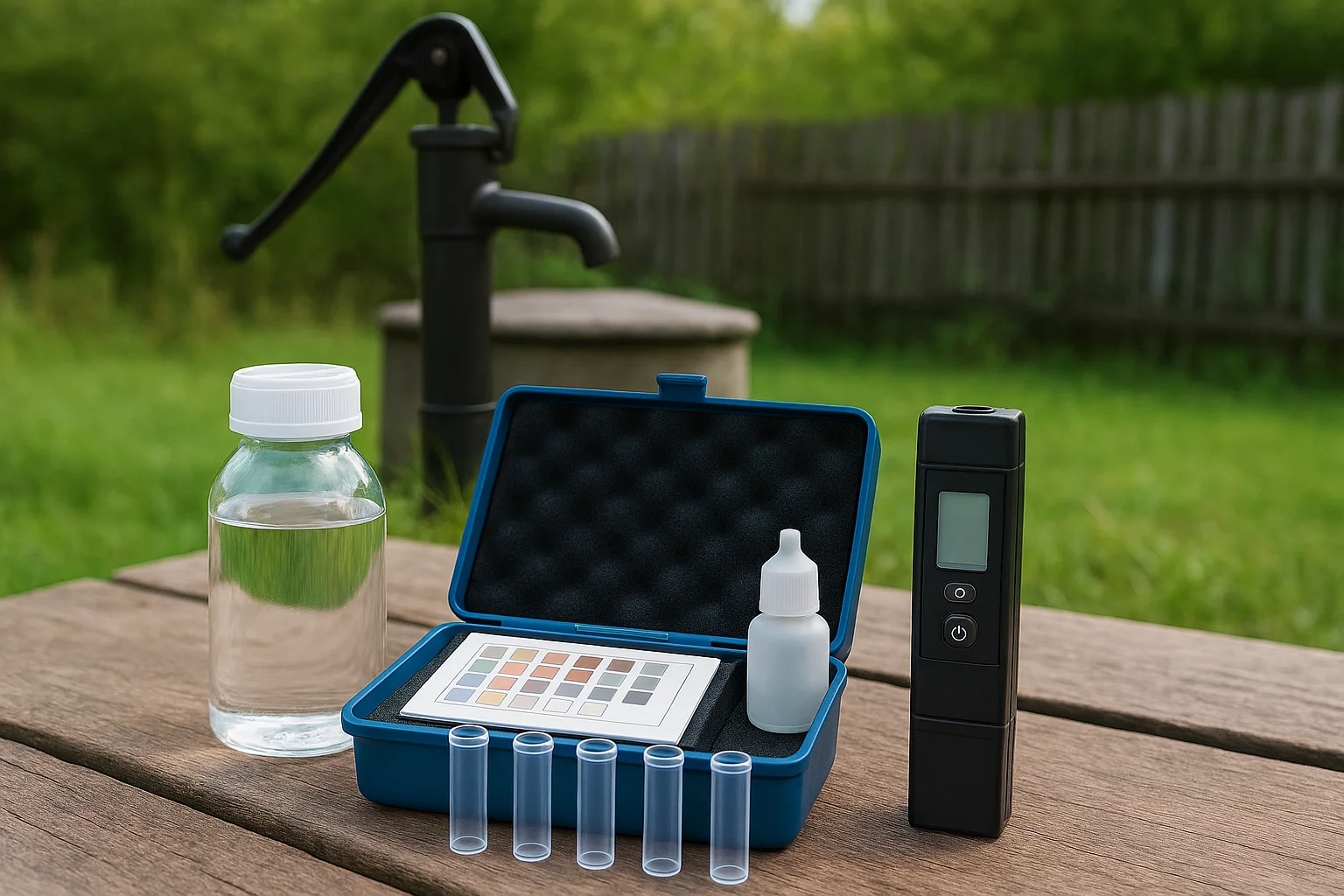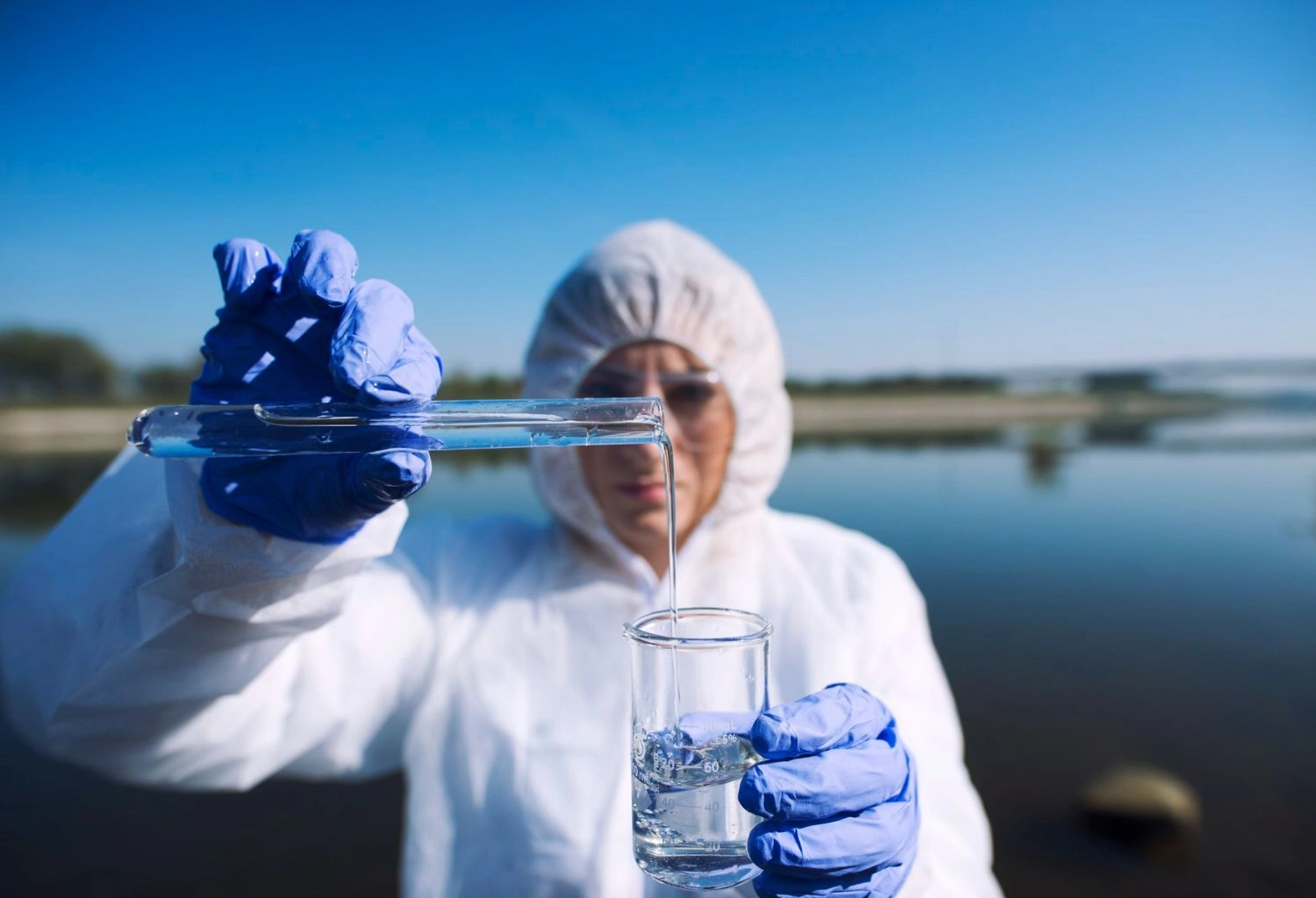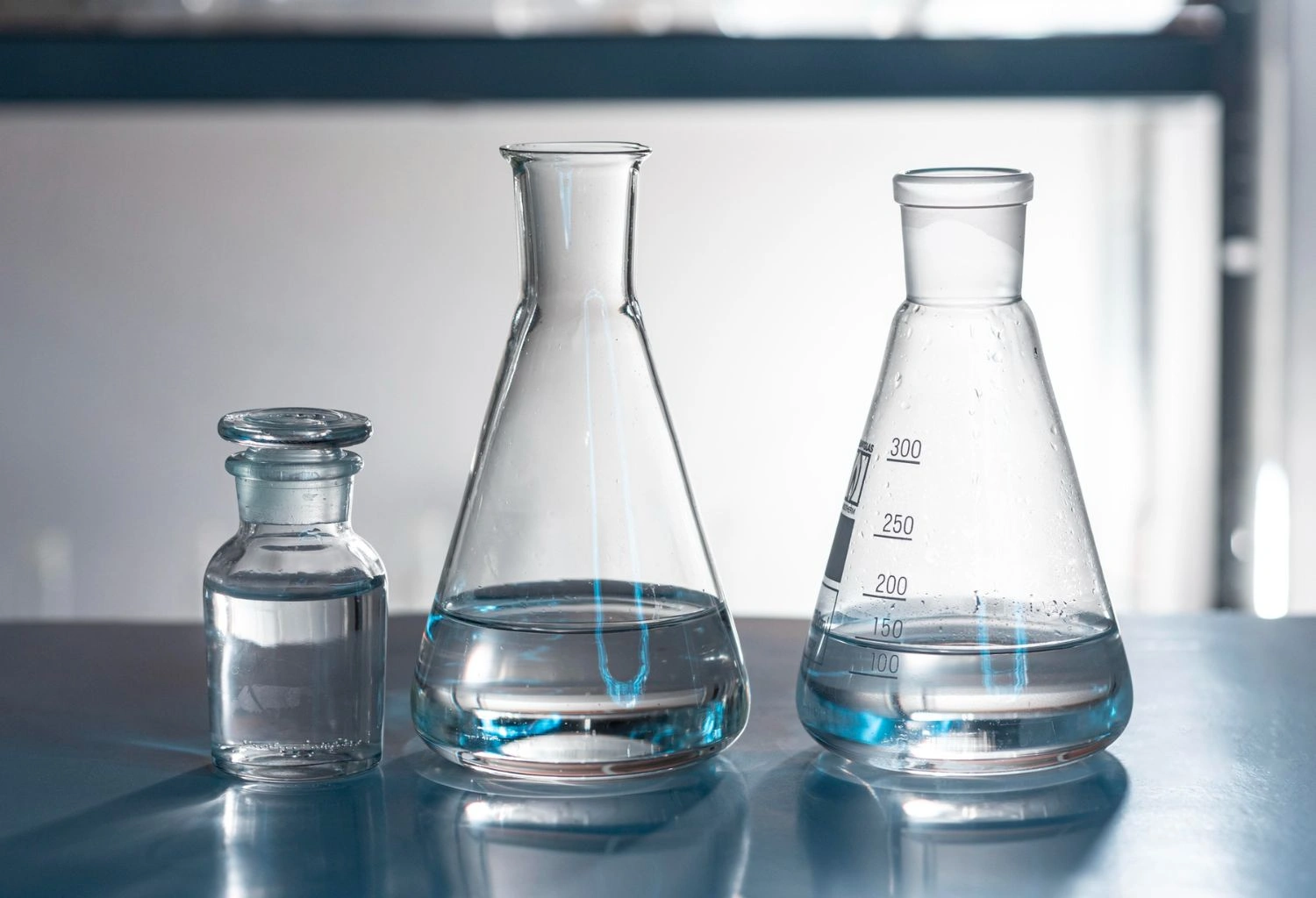Why Is It Crucial to Test the Water Quality in Your Private Well?
If you own a private well, you know the responsibility of ensuring that the water you consume and use is safe. Unlike municipal water supplies that are regulated and tested regularly, private well owners are entirely responsible for testing the quality of their water. So, why should you care about testing your well water quality? Simply put: it’s essential for your health, home, and peace of mind.Private wells are often vulnerable to contamination from a variety of sources, including bacteria, chemicals, and naturally occurring minerals. Many contaminants are invisible and tasteless, making it difficult to detect them without proper testing. This is where water quality testing kits come in. Whether you’re concerned about pollutants or simply want to ensure that your water remains safe and clean, having a good water testing kit is vital.In this guide, we’ll explore why water testing is essential for private well owners, how to test your water, and the best water quality testing kits for your needs.
What Are the Most Common Contaminants Found in Private Well Water?
Private well water can become contaminated in several ways, and it’s important to understand what contaminants may be lurking in your water. Some common culprits include:
- Bacteria: Coliform bacteria, including E. coli, is one of the most common contaminants found in well water. These bacteria can cause severe illness, making water testing a must.
- Nitrates: Nitrates are commonly found in well water due to runoff from agricultural fertilizers, septic systems, and other waste products. High levels of nitrates are particularly dangerous for infants and pregnant women.
- Heavy Metals: Lead, arsenic, and other heavy metals can seep into well water through old plumbing systems or contamination from industrial or agricultural activities. Prolonged exposure to these metals can lead to serious health problems.
- Hardness: High levels of calcium and magnesium cause hard water, which may not be harmful to health but can cause scaling on pipes, appliances, and fixtures. It’s worth testing if you’re noticing water spots or poor soap performance.
- Chlorine and Chloramine: In some cases, private well water may be treated with chlorine or chloramine for disinfection, which can affect the taste and smell of the water.
- pH Levels: Water with a pH that is too high (alkaline) or too low (acidic) can cause problems with plumbing and appliances, as well as affect the taste of your water.
- Volatile Organic Compounds (VOCs): VOCs, often found in industrial areas, can contaminate well water. These chemicals can cause health issues such as headaches, nausea, and even liver damage if consumed over long periods.
Testing your water regularly can help you catch these contaminants before they pose a serious risk.
Water Quality Monitoring
How Can You Test the Quality of Your Private Well Water?
Testing your private well water is essential to ensure it’s safe for consumption. Here are a few methods to test your well water:
1. At-Home Water Testing Kits
At-home water testing kits are one of the easiest and most affordable ways for private well owners to test their water quality. These kits typically allow you to test for a variety of contaminants, including bacteria, pH, hardness, nitrates, and heavy metals. Some kits even include color-coded charts that indicate safe or unsafe levels for each contaminant.
Advantages:
- Easy to use at home
- Quick results
- Affordable
Limitations:
- May not test for all contaminants, especially chemicals and VOCs
- Accuracy can vary depending on the brand and the tests included in the kit
Water Testing Kits
Water Testing Kits
Water Testing Kits Curium Water Testing Kits — Precision You Can Trust in Field Analysis Designed for on-site water testing and rapid diagnostics, the Curium series stands out as a highly reliable and efficient solution.
Water Testing Kits
2. Laboratory Testing Services
While home testing kits are convenient, they may not be as comprehensive or accurate as sending your water sample to a professional laboratory. A certified lab can test your well water for a wide range of contaminants, including heavy metals, bacteria, nitrates, pesticides, and VOCs.Laboratories can also give you detailed reports with exact concentrations of contaminants, which can be particularly important for serious health concerns.
Advantages:
- More accurate and comprehensive than at-home kits
- Professional interpretation of results
- Testing for a wide range of contaminants
Limitations:
- Takes more time for results (usually a few days to weeks)
- More expensive than at-home kits
3. Water Test Strips
Water test strips are another quick and easy option for testing water quality at home. These strips change color when exposed to certain contaminants, such as pH levels, chlorine, or hardness. Test strips can be used for regular, routine checks to ensure that water is within safe parameters.
Advantages:
- Quick and simple
- Affordable
- Ideal for monitoring general water quality (e.g., pH, hardness)
Limitations:
- Limited testing capabilities (usually just basic elements)
- May not be as accurate as more comprehensive kits or lab tests
What Are the Best Water Quality Testing Kits for Private Well Owners?
Selecting the right water quality testing kit is essential for getting accurate results. Below are some of the best water quality testing kits for private well owners, catering to different needs and budgets:
1. Aquachek Well Water Test Kit
Aquachek’s well water test kit is one of the most popular options for home water testing. This kit allows you to test for up to 10 different contaminants, including pH, hardness, chlorine, nitrate, nitrite, and iron.
Features:
- Tests for 10 contaminants
- Easy-to-read color charts
- Fast results in just minutes
Best For: Homeowners who want to quickly check basic water quality parameters such as hardness and chemical contaminants.
2. First Alert WT1 Well Water Test Kit
The First Alert WT1 is designed for private well owners who want to test for a wide range of contaminants, including bacteria, nitrates, nitrites, hardness, and chlorine. This kit is especially useful for those who are concerned about microbiological contamination.
Features:
- Includes tests for bacteria, nitrates, nitrites, and hardness
- Tests for both general and specific water quality concerns
- Simple instructions and results
Best For: Homeowners looking for a straightforward, reliable kit that tests for both chemical and microbiological contaminants.
3. LabCorps Water Quality Test Kit
If you’re looking for a comprehensive and scientifically accurate water testing kit, LabCorps offers a variety of water testing services. This includes extensive laboratory testing, which can check for over 200 possible contaminants, including heavy metals, bacteria, VOCs, and pesticides.
Features:
- Tests for over 200 contaminants
- Professional lab results with detailed reports
- Trusted by well owners and municipalities
Best For: Homeowners who need in-depth and professional results, especially those concerned about specific chemicals or heavy metals.
4. Safe Home DIY Well Water Test Kit
The Safe Home DIY Kit is another comprehensive water testing kit designed to check for a wide variety of contaminants. This kit tests for over 200 possible pollutants, including bacteria, lead, pesticides, and heavy metals. It’s especially popular for its convenience and accuracy.
Features:
- Tests for over 200 contaminants
- Provides professional-grade results
- Comprehensive reports with actionable information
Best For: Homeowners who need a broad range of tests but still want to perform the testing themselves at home.
How Often Should Private Well Owners Test Their Water?
Testing your well water regularly is crucial to ensuring its safety. The frequency of testing can depend on several factors, including the age of your well, the surrounding environment, and any recent changes in water taste, smell, or appearance. Here are some general guidelines:
- Initial Testing: Test your well water when you first move into a property or install a new well to establish a baseline of water quality.
- Annual Testing: For basic contaminants like pH, hardness, and chlorine, test once a year.
- Quarterly Testing: If your well is located near agricultural land or industrial areas, testing every 3-6 months for bacteria and nitrates is a good idea.
- Post-Storm Testing: After a heavy storm or flood, test your water for potential contamination from runoff.
Conclusion
Testing the water quality in your private well is crucial for your health and the health of your family. With the right water quality testing kits, you can detect harmful contaminants and take appropriate action. Whether you choose an at-home kit or send samples to a laboratory, regular testing ensures that the water from your well remains clean and safe.
FAQs About Water Quality Testing Kits for Private Well Owners
Q1: How can I tell if my private well water is contaminated?
A1: Common signs of contamination include unusual odors, changes in taste, discoloration, or the presence of visible particles in the water. If you notice these, it’s essential to test the water immediately.
Q2: Can I rely on home water testing kits?
A2: Home testing kits can give you a general idea of your water’s quality, but they might not be as accurate as lab testing, especially for chemical contaminants or heavy metals. For critical issues, consider professional lab testing.
Q3: How much does it cost to test my well water?
A3: The cost of home testing kits can range from $10 to $50, while lab tests can cost anywhere from $50 to $300 or more, depending on the complexity and range of tests.
Q4: What should I do if my test shows dangerous contaminants in my well water?
A4: If dangerous contaminants like E. coli, arsenic, or lead are found, take immediate action. This may include treating the water with appropriate filtration systems, seeking professional help for well cleaning, or considering well repair or relocation.
Q5: Can I treat my well water to remove contaminants?
A5: Yes, there are various water treatment options available, such as reverse osmosis systems, UV purification, or activated carbon filters, depending on the type of contaminants found.



